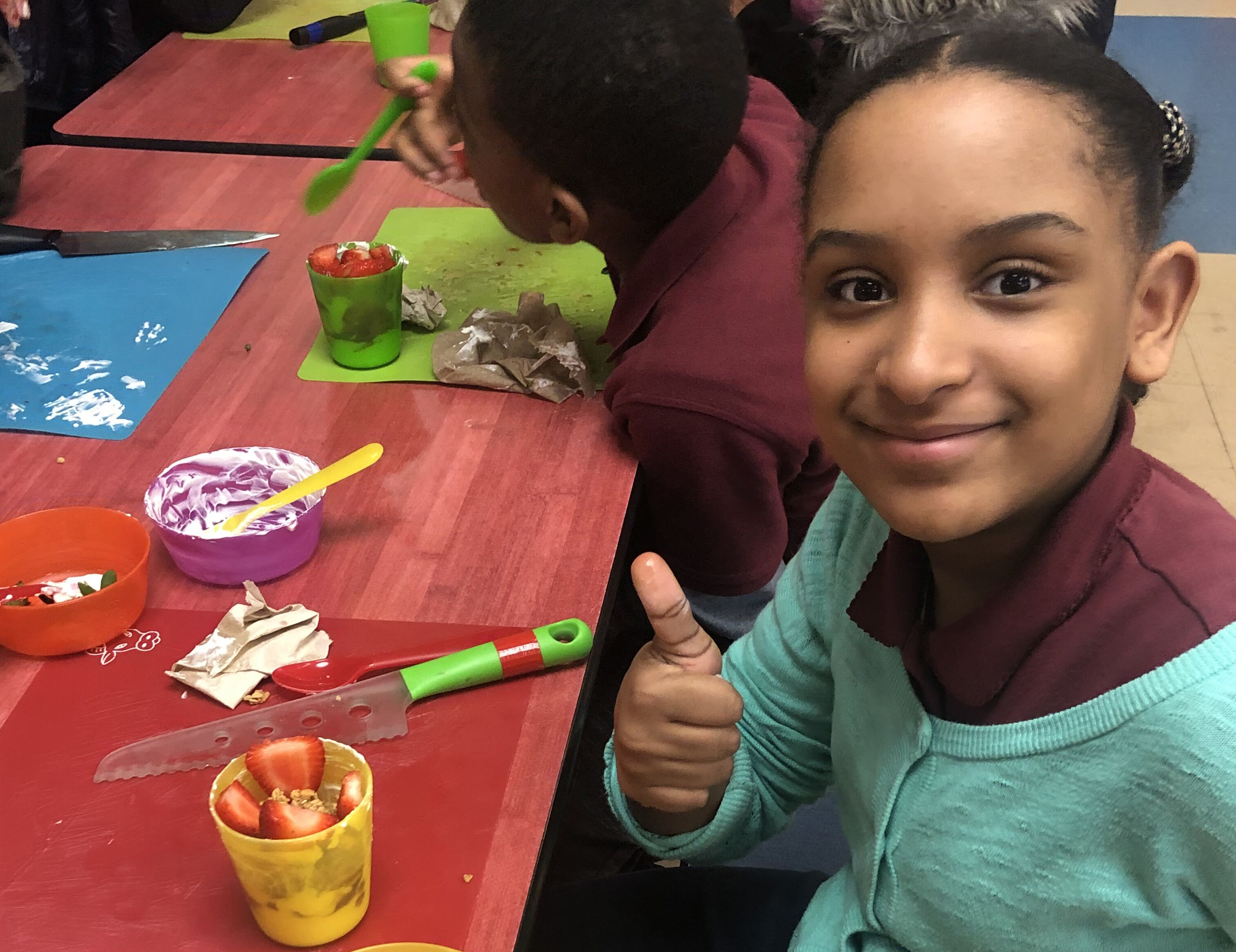Success: the Purposeful Addiction

As we explore the tenth and final of our “10 Experiential Drivers of Behavior Change” you may ask: how can your Teaching Kitchen be set up for participants’ success? What does success mean at different age and stages of development? Sometimes we need to cross disciplines to fully understand the power of success to achieve desired behavior change and here’s why….
When a child is learning how to ride a bicycle, they will certainly fall down in the process. But once they master balancing on a two wheeler, their self-confidence surges and they can’t wait to hop on and ride again the next chance they get!
This experience of success and mastery, followed by an urge to repeat the joyful experience is replicable by children and adults alike when they succeed to master a valued skill. So what does this tell us about teaching kitchens and behavior change?
Quite a lot. When a patient is part of a Teaching Kitchen course successfully designed to shift behaviors (e.g. increase frequency of home cooked meals and choosing healthier recipes and ingredients), one can pretty much be assured that classes with ‘hands on’ cooking opportunities will yield greater participant behavior changes as compared with those offering cooking demonstrations, but very little participant cooking.
When Addiction Can Be Your Friend
This all comes back to the excitement and satisfaction – resulting from endorphins and/or dopamine secreted by the brain, that make you feel great when you achieve a goal.
So here’s the thing. Watching someone else model what we can potentially do to succeed in the future does not provide that same ‘rush’ of brain chemicals creating the sensation of joyfulness that’s felt when we succeed to actually do something that requires our skill. Since no ‘joy’ chemicals are released when we watch someone else successfully produce a recipe – there is no urgency to replicate what we see. A typical demo participant will merely store the information absorbed during the demo for use in some indefinite future time frame.
Enter Neuroscience
The key difference is the surge of motivation that results from being ‘hands on’ and feeling the great joy of success. Yet the release of brain chemicals that reinforce successful experiences are not the only reinforcing and motivational force behind a hands-on teaching kitchen success. Other factors learned from neuroscience research include: brain patterning as we practice our knife skills and mise en place for instance. Also influencing our behavior is the information we take in via our peripheral vision, as we see other participants in our periphery going through the similar motions to ours, and learning in a similar and sometimes, more successful, fashion.
I’ve watched many parents play tug of war with a potato and their young child. They don’t feel comfortable to let their little one use a grater for fear they will get hurt. Yet that same parent, after catching a glimpse of another parent resolving this same conflict by holding onto the potato with their child and slowing, carefully moving the potato across the grater, stopping to share the child’s satisfaction that they ‘helped,’ will imitate what they viewed in their periphery and leap forward in their understanding of how to approach cooking as a team.
Implications for Your Teaching Kitchen
These key moments of experiencing success from practice and mastery are essential to achieving behavior change with home cooking. So if your Teaching Kitchen has yet to adopt hands-on sessions, it may be time to bite the bullet. With ‘pop up kitchens’ all the rage in this work, you don’t need a huge new investment in equipment. Rather you need a curriculum design which considers the dual lessons of behavior change theories and neuroscience. It takes both to design a program that motivates through individual success the resultant measurable behavior changes leading to the prize: improved health outcomes.

